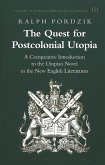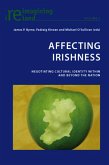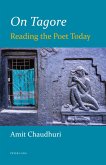Whatever happened to realism? What form is adequate to representing our moment, situated as we are after the end of 'the end of History'? In the face of youth revolts and workers' insurgencies from Cairo to London, it seems a good time to test the possibilities of alternative Marxist defences of contemporary realist fiction. Can realism's techniques adequately represent the complexity of contemporary political organisation? This book reads key realist texts from recent decades in order to test their potential to produce the knowledge of history, industrial politics and the metropolis traditionally central to literary realism's concerns. Positioning himself within and against the inspiration and models of Fredric Jameson's literary theory, and drawing on innovative realist texts, the author seeks to draw the classic realism controversies of an earlier period in historical materialism into productive conversation with the debates framing the era of austerity.
«This boldly original book argues that realism has been the missing element in the post-globalisation revival of Marxism. McNeill sets out both to defend the desirability and chart the development of a truly contemporary realism, as he finds it in novels drawn from England, Scotland, Germany and New Zealand. This new realism will be emergent and oppositional, in Raymond Williams's terms, rather than dominant. And, unlike earlier Lukácsian theories, this new realist aesthetic will decline to polemicise against other genres, preferring to form a «readerly united front» against the reifications of globalisation, alongside the future-investigations of cyberpunk and science fiction and the ideological interrogations of metafiction. This truly remarkable book promises to conjoin ontologies of the present and forecasts of the past to Jameson's archaeologies of the future.» (Professor Andrew Milner, Monash University, Melbourne)
«[...] a stimulating and confident declaration of the validity of the realist novel in the age of neoliberalism, and of the continuing relevance of Marxist literary scholarship.» (Elinor Taylor, Key Words: A Journal of Cultural Materialism 11, 2013)
«[...] a stimulating and confident declaration of the validity of the realist novel in the age of neoliberalism, and of the continuing relevance of Marxist literary scholarship.» (Elinor Taylor, Key Words: A Journal of Cultural Materialism 11, 2013)








